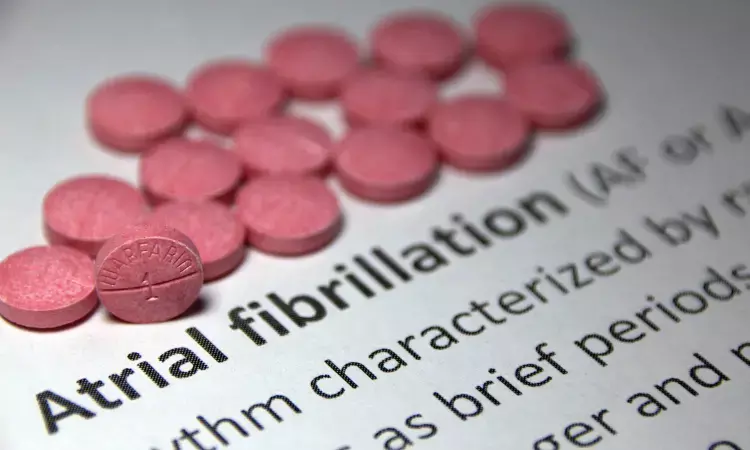- Home
- Medical news & Guidelines
- Anesthesiology
- Cardiology and CTVS
- Critical Care
- Dentistry
- Dermatology
- Diabetes and Endocrinology
- ENT
- Gastroenterology
- Medicine
- Nephrology
- Neurology
- Obstretics-Gynaecology
- Oncology
- Ophthalmology
- Orthopaedics
- Pediatrics-Neonatology
- Psychiatry
- Pulmonology
- Radiology
- Surgery
- Urology
- Laboratory Medicine
- Diet
- Nursing
- Paramedical
- Physiotherapy
- Health news
- Fact Check
- Bone Health Fact Check
- Brain Health Fact Check
- Cancer Related Fact Check
- Child Care Fact Check
- Dental and oral health fact check
- Diabetes and metabolic health fact check
- Diet and Nutrition Fact Check
- Eye and ENT Care Fact Check
- Fitness fact check
- Gut health fact check
- Heart health fact check
- Kidney health fact check
- Medical education fact check
- Men's health fact check
- Respiratory fact check
- Skin and hair care fact check
- Vaccine and Immunization fact check
- Women's health fact check
- AYUSH
- State News
- Andaman and Nicobar Islands
- Andhra Pradesh
- Arunachal Pradesh
- Assam
- Bihar
- Chandigarh
- Chattisgarh
- Dadra and Nagar Haveli
- Daman and Diu
- Delhi
- Goa
- Gujarat
- Haryana
- Himachal Pradesh
- Jammu & Kashmir
- Jharkhand
- Karnataka
- Kerala
- Ladakh
- Lakshadweep
- Madhya Pradesh
- Maharashtra
- Manipur
- Meghalaya
- Mizoram
- Nagaland
- Odisha
- Puducherry
- Punjab
- Rajasthan
- Sikkim
- Tamil Nadu
- Telangana
- Tripura
- Uttar Pradesh
- Uttrakhand
- West Bengal
- Medical Education
- Industry
SGLT2 inhibitors may protect T2D patients with AF from HF and renal complications: Study

A recent study found a significant discovery in the treatment of patients with from type 2 diabetes (T2D) with concurrent atrial fibrillation (AF) which is a combination that markedly increases the risk of adverse cardiovascular events. The major outcomes of this study were published in The Journal of Clinical Endocrinology and Metabolism.
This comprehensive nationwide retrospective cohort study utilized data from the Taiwan National Health Insurance Research Database and the findings highlight the comparative effects of sodium-glucose cotransporter-2 inhibitors (SGLT2i) and glucagon-like peptide-1 receptor agonists (GLP-1RA) on the patients with and without AF.
The study spanned from May 1, 2016 to December 31, 2019 and observed a total of 344,392 T2D patients without AF and a total of 31,351 with AF treated with SGLT2i, along with 11,462 and 816 T2D patients with and without AF, respectively with GLP-1RA administration. The participants were monitored up to December 31, 2020 for various cardiovascular outcomes after employing propensity score stabilized weighting to ensure the equitable comparison between the two medication groups.
The results unveiled a striking distinction in treatment outcomes, specially for the patients with concomitant AF. The individuals treated with SGLT2i experienced a significantly reduced risk of hospitalization for heart failure when compared to their counterparts on GLP-1RA with an incidence rate of 2.32 versus 4.74 events per 100 person-years. SGLT2i was associated with a lower risk of composite kidney outcomes in both groups that highlights its benefits beyond heart health.
This study observed no significant difference between the two drugs in terms of major adverse cardiovascular events and all-cause mortality, regardless of AF status. This neutrality illuminates the complexity of T2D management along with cardiovascular conditions and highlights the need for personalized treatment strategies.
The positive effects of these findings are significant in diabetic patients with the high prevalence and risk of heart failure. This evidence strongly suggests that SGLT2i may offer superior protection against heart failure and renal complications for the T2D patients with AF which elevated the risk for these debilitating conditions. However, this study warrants further investigation to conclusively determine whether SGLT2i should be the preferred treatment option over GLP-1RA for this high-risk demographic.
Source:
Chan, Y.-H., Chao, T.-F., Chen, S.-W., Lee, H.-F., Li, P.-R., Yeh, Y.-H., Kuo, C.-T., See, L.-C., & Lip, G. Y. H. (2024). SGLT2 inhibitors vs. GLP-1 receptor agonists and clinical outcomes in patients with diabetes with/without atrial fibrillation. In The Journal of Clinical Endocrinology & Metabolism. The Endocrine Society. https://doi.org/10.1210/clinem/dgae157
Neuroscience Masters graduate
Jacinthlyn Sylvia, a Neuroscience Master's graduate from Chennai has worked extensively in deciphering the neurobiology of cognition and motor control in aging. She also has spread-out exposure to Neurosurgery from her Bachelor’s. She is currently involved in active Neuro-Oncology research. She is an upcoming neuroscientist with a fiery passion for writing. Her news cover at Medical Dialogues feature recent discoveries and updates from the healthcare and biomedical research fields. She can be reached at editorial@medicaldialogues.in
Dr Kamal Kant Kohli-MBBS, DTCD- a chest specialist with more than 30 years of practice and a flair for writing clinical articles, Dr Kamal Kant Kohli joined Medical Dialogues as a Chief Editor of Medical News. Besides writing articles, as an editor, he proofreads and verifies all the medical content published on Medical Dialogues including those coming from journals, studies,medical conferences,guidelines etc. Email: drkohli@medicaldialogues.in. Contact no. 011-43720751


